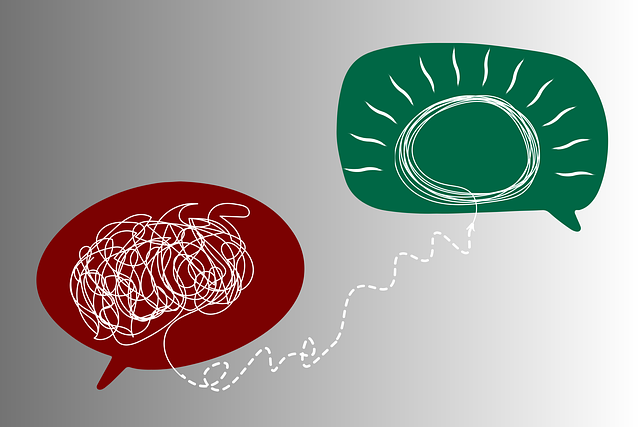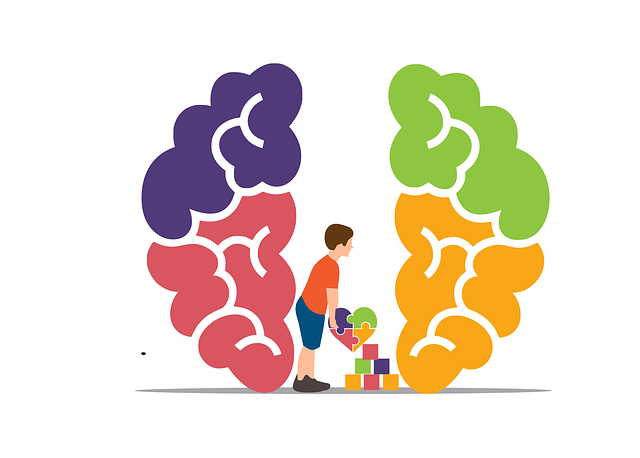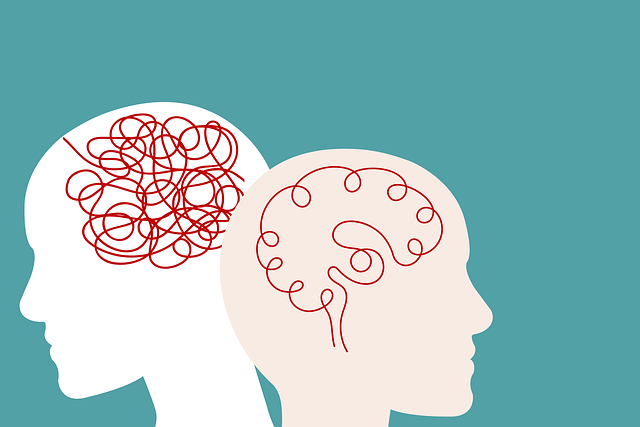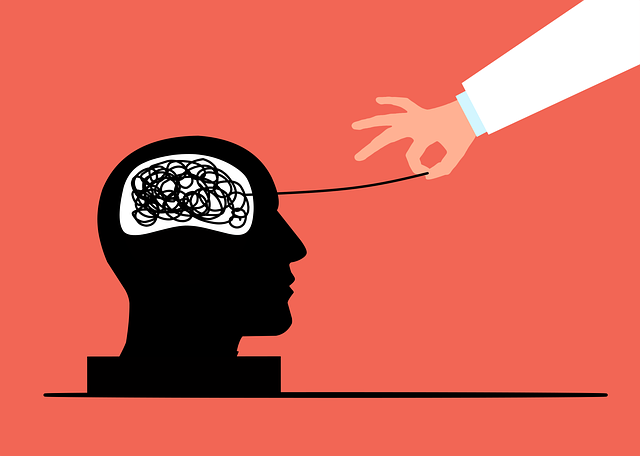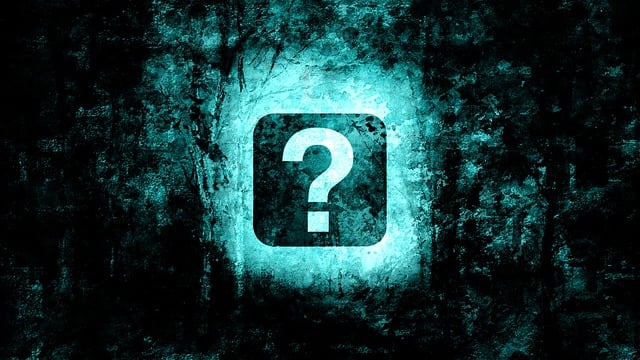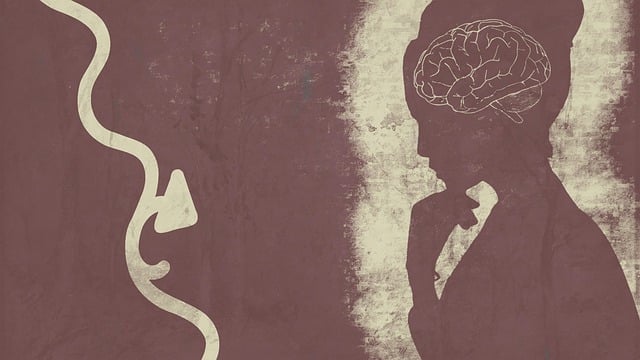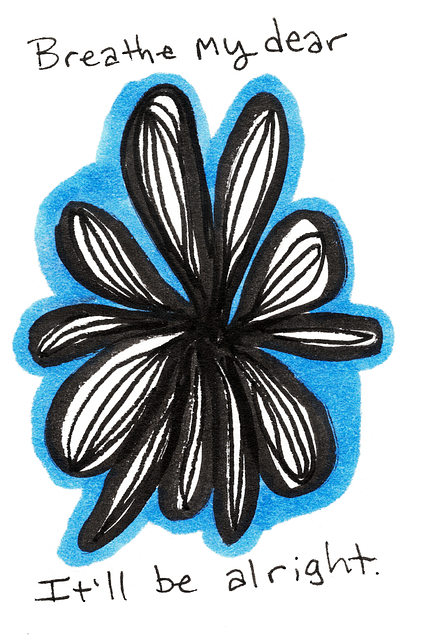Social skills training and mental wellness practices are key to managing bipolar disorder in Louisville. Louisville Bipolar Disorder Therapy integrates journaling, mindfulness, and crisis guidance into cognitive behavioral therapy, improving emotional regulation, communication, and impulse control. These strategies empower individuals to confidently navigate social environments, reduce isolation, and improve relationships, leading to better overall mental health outcomes.
Social skills training is a powerful tool in managing mental health conditions, especially bipolar disorder. This article delves into the intricate relationship between social skills and mental well-being, offering valuable insights for individuals navigating these challenges. We explore effective strategies to enhance communication and interaction, focusing on Louisville Bipolar Disorder Therapy’s innovative approach to nurturing social competence. By understanding and developing essential social skills, individuals can improve their overall quality of life and better manage their conditions.
- Understanding the Connection Between Social Skills and Mental Health
- Strategies for Developing Essential Social Skills
- Louisville Bipolar Disorder Therapy: Nurturing Social Competence
Understanding the Connection Between Social Skills and Mental Health

Social skills are a crucial aspect of mental wellness, and their impact on individuals with mental health conditions, such as bipolar disorder in Louisville, cannot be overstated. Effective communication, empathy, and social interaction not only enhance overall quality of life but also play a pivotal role in managing symptoms. Many people struggling with bipolar disorder or other mental health challenges face difficulties in social settings due to emotional dysregulation, which can lead to isolation and further distress.
Incorporating Mental Wellness Journaling Exercises and Mindfulness Meditation techniques into therapy has been proven beneficial. These practices help individuals gain insights into their emotions, improve impulse control, and foster healthier interactions. Additionally, Crisis Intervention Guidance is essential in teaching coping strategies for high-stress situations, enabling individuals to navigate social environments with greater confidence and resilience. By addressing social skills, Louisville Bipolar Disorder Therapy can offer comprehensive support, promoting better mental health outcomes and improved relationships.
Strategies for Developing Essential Social Skills

Developing essential social skills is a key component in managing mental health conditions like bipolar disorder in Louisville. For individuals dealing with anxiety and mood swings, effective communication strategies become invaluable tools. Through structured training, one can learn to recognize and manage emotional triggers, fostering better interactions with peers and loved ones. This involves practicing active listening, expressing thoughts and feelings clearly, and maintaining appropriate boundaries.
Group therapy sessions can significantly enhance these skills by providing a safe, supportive environment where individuals can role-play various social scenarios and receive immediate feedback. Techniques focused on inner strength development, such as mindfulness exercises and cognitive behavioral therapy, empower people to stay calm during anxious moments, thereby improving their overall confidence in social settings. By integrating these strategies into daily routines, those with bipolar disorder or other mental health conditions can navigate social interactions more smoothly, leading to better quality of life and reduced symptoms.
Louisville Bipolar Disorder Therapy: Nurturing Social Competence

Louisville Bipolar Disorder Therapy focuses on empowering individuals to navigate social interactions with confidence and ease. Many people struggling with bipolar disorder experience challenges in social settings due to mood swings, impulsive behaviors, or feelings of isolation. Our specialized programs are designed to address these unique barriers by providing mental health education and practical tools for enhancing social competence.
Through innovative Mental Wellness Coaching Programs Development, we cultivate a safe and supportive environment where participants can learn effective communication strategies, practice empathy, and develop coping mechanisms tailored to their specific needs. Additionally, incorporating Compassion Cultivation Practices into our Louisville Bipolar Disorder Therapy has shown remarkable results in fostering deeper connections, improving self-awareness, and promoting overall mental wellness.
Social skills training is a powerful tool in managing mental health conditions, especially bipolar disorder. By understanding the connection between social skills and mental well-being, individuals can navigate social interactions with confidence. The strategies outlined in this article provide practical ways to enhance communication and build connections, which are essential for improving overall mental health. Louisville Bipolar Disorder Therapy takes a holistic approach, recognizing that nurturing social competence is integral to the healing process, ultimately fostering a supportive and connected community for those navigating bipolar disorder.


